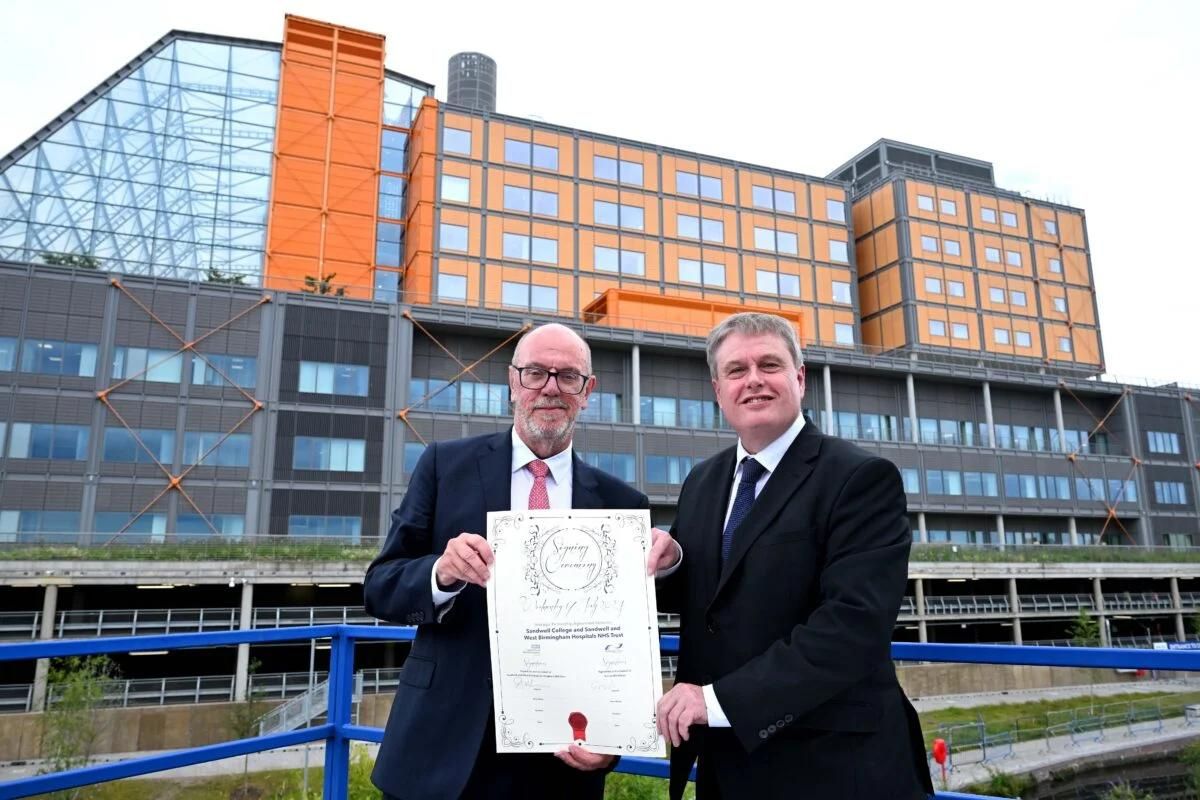The Future of Adult Learning is in the Hands of Local Leaders

Life chances and education go together. Once someone leaves school with few qualifications, it requires considerable dedication and effort to catch up. Many never do.
The White Paper talks mostly about “geographical disparity” – a focus on places rather than people. In education, levelling up surely starts with the life chances of the individual as well as the economic strength of their local community.
Levelling Up Adults through Level 2 and Below Skills
Levelling up should be about leaving no one behind, regardless of their age, background, current circumstances or postcode. Education – and community learning especially – should be the catalyst for that.
The Levelling Up white paper and the reforms emerging from the Skills for Jobs white paper ought to add up to a blueprint for overcoming educational inequality. For that to happen it is essential to strengthen the ramp – the provision below level 3 – which adult learners require to reach better life chances.
Disadvantaged adult learners face many barriers. By far the biggest disappointment with the Levelling Up white paper is that it follows the Skills for Jobs white paper in largely ignoring those barriers and assuming that adult learners will somehow find their own way into high skilled jobs.
All of the skills initiatives listed in the Levelling Up white paper assume a level of confidence and readiness which most disadvantaged adults would not have. For every adult who is ready to take a Level 3 qualification or subscribe to an intensive Boot Camp course, there will be many others for whom they are out of reach.
Details are sketchy on the few initiatives which do seem to address barriers for the most in need. In particular we wait patiently to know how the numeracy programme, Multiply, will roll out. The Department for Work and Pensions is recruiting job coaches to support people to progress from low-income jobs but without access to courses which provide new and transferable skills, progression will be limited.
The Local Leadership Mission
Looking at the white paper, it is not the ‘skills mission’ which will make the most difference to adult learners, it is the ‘local leadership’ mission. This offers to devolve powers – including skills and adult education budgets – to all top tier authorities. That could fundamentally change the adult education and skills landscape in England.
The future devolution deals will almost certainly focus on high skilled economic growth. This is entirely laudable – no region should lack ambition. But it ought not to be at the expense of left behind communities.
Years of underinvestment in community learning means that there are still too many adults who lack qualifications or who struggle with literacy, numeracy and digital skills. The time is right for local leaders to take on the challenge of ‘levelling up’ skills by using the adult education budget for carefully targeted interventions, in collaboration with providers who work with the most disadvantaged communities.
Focus the Devolved Adult Education Budget on Level 2 and Below
Rather than focusing only on the high skilled parts of the regional economy it is important for devolved education budgets to support a broad curriculum, appealing to learners of all abilities, interests and backgrounds.
Driving up participation and creating a culture of learning should start with what interests us and what we enjoy.
For many of us that isn’t pitching straight into a maths or digital skills crash course. Arts, humanities and social sciences have considerable value – building confidence to learn, broadening world views and making connections with other people. They deserve funding in their own right, not just as a stepping stone to more technical courses.
This is particularly important below Level 3 where the broadest curriculum is needed to attract the widest range of learners. Study at this level is about building confidence, acquiring the motivation to learn and finding out which pathways to follow. Setting too narrow a starting point – or worse still, not funding this level of provision adequately – immediately reduces the pool of learners who would be willing to take the first step.
Identify Spending on Level 2 and Below in Devolved Adult Skills Fund
Looking ahead, the AEB and National Skills Fund will be merged to create a single Adult Skills Fund. It is crucial that local leaders are transparent and clear about how much funding will be available for provision below Level 3. Funding for this level should be as flexible as possible allowing providers to meet local need by offering a broad curriculum which includes the arts and humanities as well as essential skills and technical subjects.
Recommendation 1
Members of Employer Representative Bodies with responsibility for developing LSIPs should encourage support for essential skills at below Level 3. Provider reports on ‘local need’ should illustrate how disadvantaged adults will be supported into better work, as well as how other beneficial outcomes will be delivered.
Recommendation 2
Funding should be available for courses below Level 3 (including non-accredited) at national and devolved levels. Allocation of the UK Shared Prosperity Fund should also support this so long as it is additional to the Adult Education Budget.
Recommendation 3
Support for learners who face financial barriers is crucial. Measures such as allowing learners to remain on Universal Credit while studying and increasing the income threshold at which learners can access a fully funded Level 2 would increase participation, overnight.
Simon Parkinson, Chief Executive, WEA
Post-16 Education and Skills: Levelling Up Everyone, Everywhere
Campaign for Learning’s paper Post-16 Education and Skills: Levelling Up Everyone, Everywhere, is a collection of 18 articles and recommendations by leading stakeholders and thinkers across the post-16 education and skills sector.
The paper covers six key considerations for the Levelling Up agenda – national and place based strategies, young people, lifelong training, lifelong learning and post-16 providers.
As the articles show, from the perspective of post-16 education and skills policy, levelling up is about people as well as places – the policy canvas is vast, the perspectives diverse and the insights important.
Together, our authors demonstrate the need for strong, nationally based as well as place based strategies if everyone, everywhere aged 16 and over are to level up through education and skills’
Part 1: Levelling Up and National and Place
- Andy Westwood, Professor of Government Practice, University of Manchester - Levelling Up and the Department for Education
- Sam Freedman, Research Fellow, Institute for Government – Levelling Up and Post-16 Education and Skills
- Fiona Aldridge, Head of Skills Insight, West Midlands Combined Authority – Levelling Up the West Midlands by 2030
- Mark Hilton, Policy Director, London First – Levelling Up London by 2030
Part 2: Levelling Up and Young People
- Geoff Barton, General Secretary, ASCL - Levelling Up and Education: Lots of Stuff but Little Substance
- Sam Tuckett, Senior Researcher, Education Policy Institute – Levelling Up 16-19 Education
- Becci Newton, Director of Public Policy and Research, IES – Levelling Up Participation by 16-18 Year Olds
- Kathleen Henehan, Senior Policy and Research Analyst, Resolution Foundation – Levelling Up 18-24 Year Olds in England
Part 3: Levelling Up and Lifelong Training
- Olly Newton, Executive Director, The Edge Foundation - Placing Vocational Education at the Heart of Levelling Up
- Mandy Crawford-Lee, Chief Executive, UVAC – Higher Technical Education, Higher & Degree Apprenticeships and Levelling Up
- Ewart Keep, Emeritus Professor, University of Oxford – The Role of Employer Training in Levelling Up
Part 4: Levelling Up and Lifelong Learning
- Stephen Evans, Chief Executive, L&W – Levelling Up in England through Lifelong Learning
- Susan Pember, Policy Director, HOLEX – Levelling Up as a Nation of Lifelong Learning
- Simon Parkinson, Chief Executive, WEA – The Future of Adult Learning is in the Hands of Local Leaders
Part 5: Levelling Up and Post-16 Providers
- David Hughes, Chief Executive, Association of Colleges – Well-Funded Colleges to Serve Every Community
- Nick Hillman, Director, HEPI – A ‘Higher Education Institute’ in Every Community
- Chris Hale, Director of Policy, Universities UK – Levelling Up and Widening Participation into Higher Education
- Jane Hickie, Chief Executive, AELP – Levelling Up is as much about People as Places











Responses